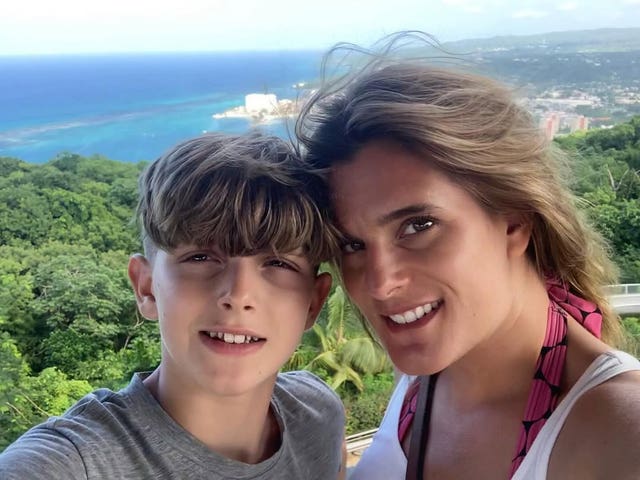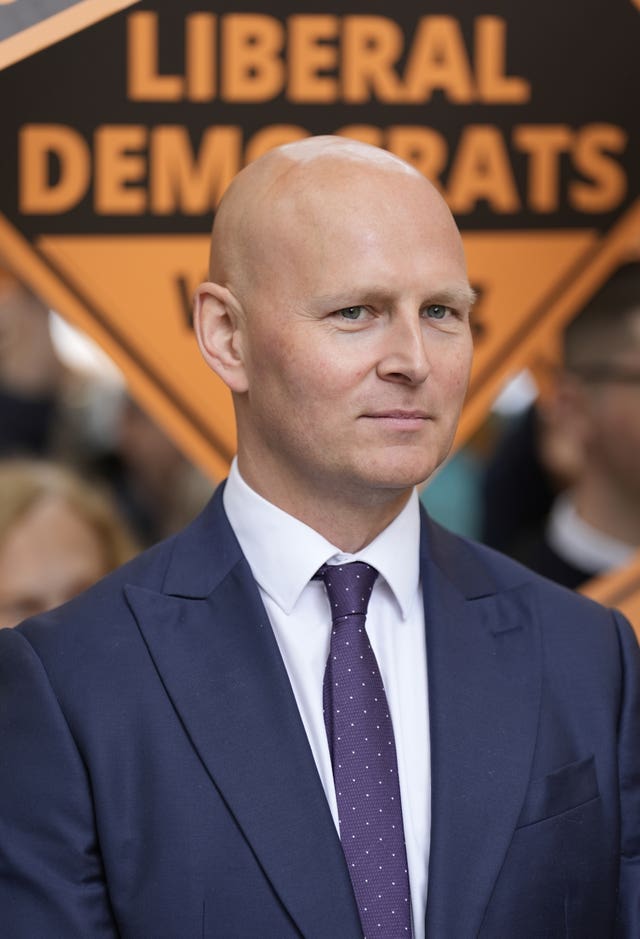Access to children’s social media after death ‘moral and humane right’, MPs hear
Liberal Democrat MP Max Wilkinson said social media giants place ‘process ahead of compassion’ for parents seeking answers about their child’s death.

Parents should be given the right “morally and humanely” to access their children’s social media accounts after they have died, MPs have heard.
Labour MP for Darlington Lola McEvoy quoted Ellen Roome, a bereaved parent seeking answers about why her 14-year-old son Jools Sweeney died in April 2022, believing it could have been an online challenge gone wrong.
Ms Roome has said technology companies have refused to give her access to the accounts, which “could shed light” on his death, saying she requires a court order to do so.

After a petition to have the issue debated in Parliament surpassed 126,000 signatures, on Monday, MPs discussed “Jools’ Law” which would give parents the right to access their children’s online activity after they die.
Ms McEvoy paid tribute to Ms Roome’s work and read a statement from the campaigner.
She said: “’In my case, and that of other parents, when the child has died who are we protecting? The predators on these platforms? Social media companies?
“Surely I should have the right to look for answers to the cause of death. Jools’ young friends struggle to understand why he is no longer here.
“The ripple effect of his death is felt not only by us as his parents’ but also by Jools’ friends, teachers and everyone in his life who were so shocked as to why he ended it.
“We deserve possible answers or at least to try for them.’”
She added: “’I’ve always said that I do not know if it was social media that caused my son to end his own life, however as a parent I feel I should morally and humanely have a right to that data to give me possible answers as there was nothing offline which seemed to be an issue to Jools.’”
Liberal Democrat MP for Cheltenham, Max Wilkinson said social media companies “placed process ahead of compassion” in Jools’ case and put his mother through a “cruel and inhumane process” in seeking answers about her son’s death.
Mr Wilkinson added: “Sadly in recent weeks and months we have seen social media companies make increasingly vociferous claims that the protection of free speech and freedom of expression online must come above all else.
“The examples of Elon Musk’s bizarre approach to X and Meta’s decision to ditch moderation in favour of community notes are instructive about what is happening and what could happen next.”
The Online Safety Act, passed in 2023, is the UK’s first major legislation to regulate social media, search engine, messaging, gaming, dating, pornography and file-sharing platforms.
The Act gives Ofcom the power to fine firms that fail to meet duties to users – potentially up to billions of pounds for the largest sites – and in serious cases can seek clearance to block access to a site in the UK.

Labour MP for Sunderland Central Lewis Atkinson opened the debate by calling on the Government to ensure that age requirements for social media would be enforced.
He said: “As the level of public concern recognises it is beyond doubt that there have been significant exposure of many children to online harms and that the action in response to that has not yet been sufficient or fast enough to meet the challenges.”
He added: “Most popular services require users to be at least 13 years of age before they can be used, but enforcement of that requirement has historically been lax and the age assurance requirements outlined in the Online Safety Act must be implemented without delay.”
Mr Atkinson also said he understands the “instinct” of parents who seek access to their children’s social media accounts while they are alive, but that “broad overarching parental rights” to accounts “would not be appropriate” because teenagers have “long-established right to privacy”.
He referred to instances where it is beneficial for teenagers to have privacy online, such as “understanding their own sexuality” before they feel comfortable telling a parent or “alerting others” if they are being abused by a parent.
Conservative MP Ben Obese-Jecty argued that safeguarding measures needed to be considered to protect vulnerable children with parents who may not have their best interest at heart.
The Huntingdon MP said: “Though parental access to a child’s social media account may sound like a simple and prudent solution, not every child will be in a position where parental figures have that child’s best interest at heart.
“Children who are vulnerable, for example in a family with an abusive parent, there will also need to be safeguarding considerations – a child who may be seeking help, communicating domestic abuse to friends or organisations may then find their only avenue of escape compromised.”
Technology minister Feryal Clark said the Government is committed to implementing the Online Safety Act and is “focused on building the evidence base to inform any future action”.
Ms Clark also thanked Ms Roome for her “tireless campaigning”, adding: “I know that you have waited a long time for change and we have a long way to go still.
“Working with Ellen, the Bereaved Families for Online Safety group, other parents, and civil society organisations, we will build a better online world for our children.”





